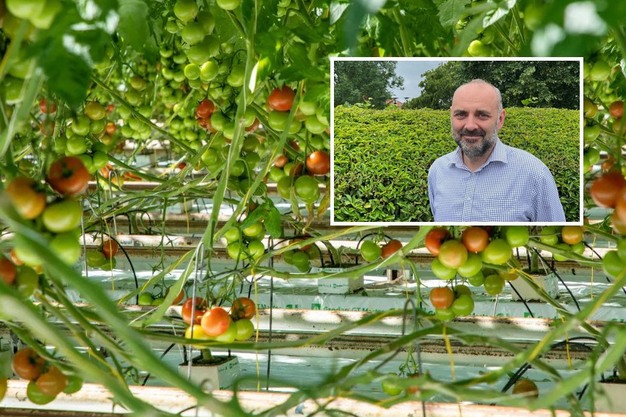Following the Border Target Operating Model, and starting from April 30th, all plants imported into the UK have to be checked at Border Control Posts (BCPs). Simon Conway, chair of the British Tomato Growers’ Association (BTGA), voices concerns over the situation. “There are big doubts about the capacity and the capability of the control points. It’s going to take time, cause delays, and stir up the costs for growers, while biosecurity cannot be guaranteed.”
Border Target Operating Model
Britain departed from the European Union's single market in January 2021, but checks on EU imports have been repeatedly postponed. Last year, they introduced the Border Target Operating Model (BTOM), a new approach to Safety and Security controls (applicable to all imports) and Sanitary and Phytosanitary controls. After several delays, these rules will take effect by April 30th.
For the import of young plants, this mandates a 100% inspection at a BCP; an inland inspection at a special facility where goods first arrive, prior to going to their final destination.
Delays and biosecurity
“Our main concern is the time of the year when we’re importing young plants. Approximately 40 to 50% of protected edible growers import plants from Holland,” says Simon. “Our concerns are about delays and biosecurity.” As the UK has two big propagators for vegetable young plants, the rules will impact the cucumber and pepper industry as well – although Simon is mainly informed about the situation in the tomato industry. And that doesn't bode well. “For this season, they’re growers are good, as planting happens once a year, but the next season will take place under the new regime.”
“These inspections themselves are going to take time, and concerns arise about the inspection capacity. We’ve already seen lorries queuing up at check points. Just last month, a pepper grower faced issues with missing documents, causing delays at the ports. Even under the current system plants can be held. Imagine the complexity of the 100% checks, especially with lorries queuing up. Plants would have to be transported to the control point, unpacked, inspected, and reloaded. A 100% inspection is going to take a lot of time, especially with countless loads on a daily basis.”
Just-in-time model
He explains that the UK greenhouse industry, like the entire UK fresh produce industry, operates on a just-in-time model: everything flows quickly, and the chain is highly efficient to minimize costs and consumer prices. “The costs for lorry delays are currently £70 per hour. With lorries queuing up, costs will accumulate rapidly.”
In addition to the costs, there’s the issue of biosecurity. “Plant raisers have really good biosecurity, as do growers. But when plants are all put in a big warehouse, there’s no control there. Young plants also need a strict temperature regime – putting them in a cold warehouse for 24 hours would severely damage them.”

Rugose virus
Then there’s the Tomato Brown Rugose Virus, still a great concern and having major economic implications globally. “We’ve seen from studies that if you buy Imported tomatoes from high risk countries in a store, there is a risk the virus will be on your hands. If an inspector visits the warehouse, the risk of transmitting is very high – even while wearing gloves. Plant raisers have complete awareness about this and have strict biosecurity protocols in place, but with these checkpoints, there’s a major risk.”
The BTGA looked into helping growers become a Control Points themselves, which is possible and has been done, for example, by Driscolls facility Berry Gardens, fresh produce trader Fruity Fresh, and bouquets producer JZ Flower, but Simon says it’s an impractical solution. “The hoops you have to jump through to qualify are intense.” A better solution would be to rely on the premises at the growers themselves, with a targeted approach by APHA he says. “Plants have phytosanitary certificates from the propagators, and growers trust the quality and safety.”
It’s not just the tomato industry having to deal with these new checkpoints. The Horticultural Trades Association has also shared their disappointment in the new rules and continues to lobby for a more practical solution, as does the farmers' organization NFU. “All organizations continue to lobby hard – but the infrastructure is there, so it might be hard to come back from it.”
For more information:
British Tomato Growers Association
www.britishtomatoes.co.uk










